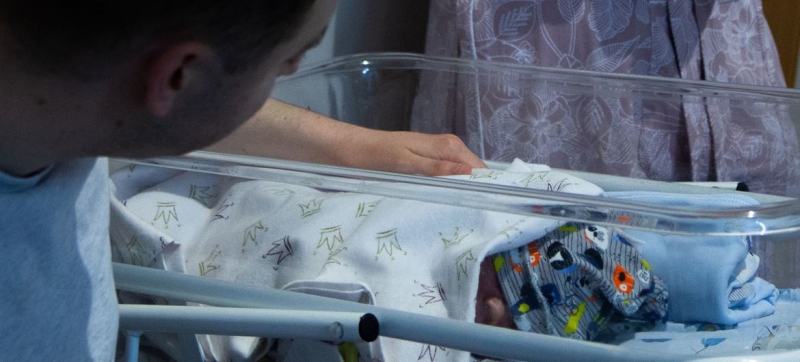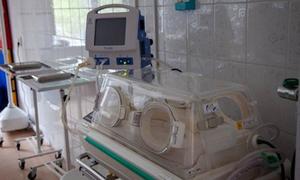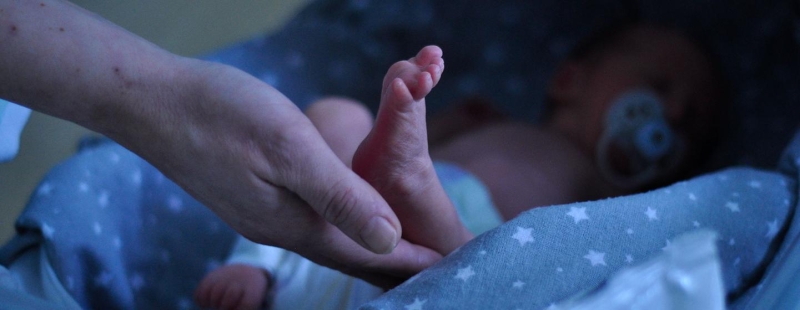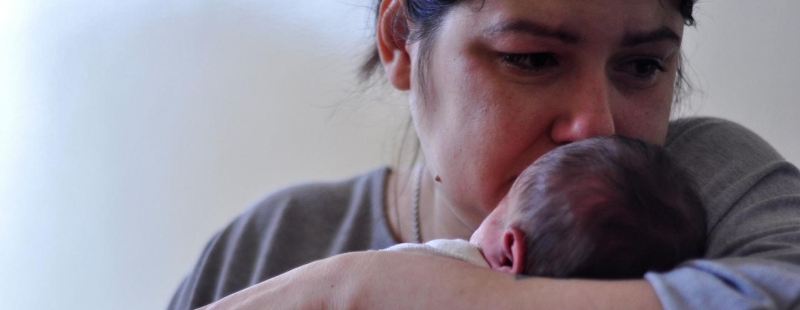
Alexandra and Alexander Chebotar with their newborn. Ukraine: childbirth during the war Healthcare
Like many future parents, Odessa residents Alexandra and Alexander Chebotar were looking forward to the birth of their daughter. Unfortunately, childbirth became a real test for them and their newly born daughter.
When the time came, the couple went to the maternity hospital. The birth went well, but immediately after it an air raid warning was declared in Odessa – another wave of Russian airstrikes hit the city. Doctors had to quickly transfer the mother and newborn to a bomb shelter. The child was transported in a special mobile incubator.

These mobile units were provided by the United Nations Population Fund (UNFPA) to support the maternity hospital and its patients in the face of ongoing hostilities and ensure the provision of essential medical services even during attacks.
Stress and failures
After the start of the war, specialists from the Odessa maternity hospital, where Alexandra was admitted, recorded a 12 percent increase in the number of complications during childbirth.
“Pregnant women come here not only from Odessa, but also from all over the south of the country , from areas near the front line,” says Igor Shpak, the hospital’s leading obstetrician. “The stress and disruption caused by the conflict has led to higher rates of caesarean sections and premature births.”
Alevtina Radionova was hiding in the bunker together with the Chebotari family. The expectant mother was waiting in line to see the doctor when the air raid siren sounded. She had to go down to the bomb shelter with other patients. Alevtina believes that in today’s conditions in Ukraine, all parental homes should be equipped with such protected premises.
In this maternity hospital, bunkers were completely equipped recently. They are equipped with the necessary equipment to ensure uninterrupted provision of medical care during shelling.
Attacks on medical facilities
In the first six months of this year, the World Health Organization (WHO) confirmed 160 attacks on medical facilities throughout Ukraine. As a result, at least 23 percent of clinics cannot operate at full capacity.

In the first six months of 2024, WHO confirmed 160 attacks on medical facilities across Ukraine
The energy infrastructure in Odessa and throughout Ukraine also continues to be hit, which leads not only to equipment failures, but also to rising prices, including for medical services. Such expenses become an additional burden for people.
UNFPA support
According to UNFPA, the number of premature births and cases of caesarean section is increasing throughout Ukraine, which is directly related to the increased level of stress among expectant mothers. In addition, rates of breastfeeding during the first six months of a child’s life have declined, leading to increased morbidity in newborns and increased demand for milk in hospitals.
UNFPA provides medical supplies, equipment and other support to Ukrainian institutions to ensure that pregnant and postpartum women continue to receive the care they need.

UNFPA provides medical supplies, equipment and other support to Ukrainian institutions to ensure that pregnant and postpartum women continue to receive the care they need. (photo from the archive)
“Without this support, we would not have the necessary equipment, such as mobile incubators to move premature babies during emergencies,” said the obstetrician Shpak.
“It is necessary for the whole world to know what is happening here,” he emphasized. “Our mothers and children deserve a better life, and we will continue to provide them with vital services.”
Read also:
